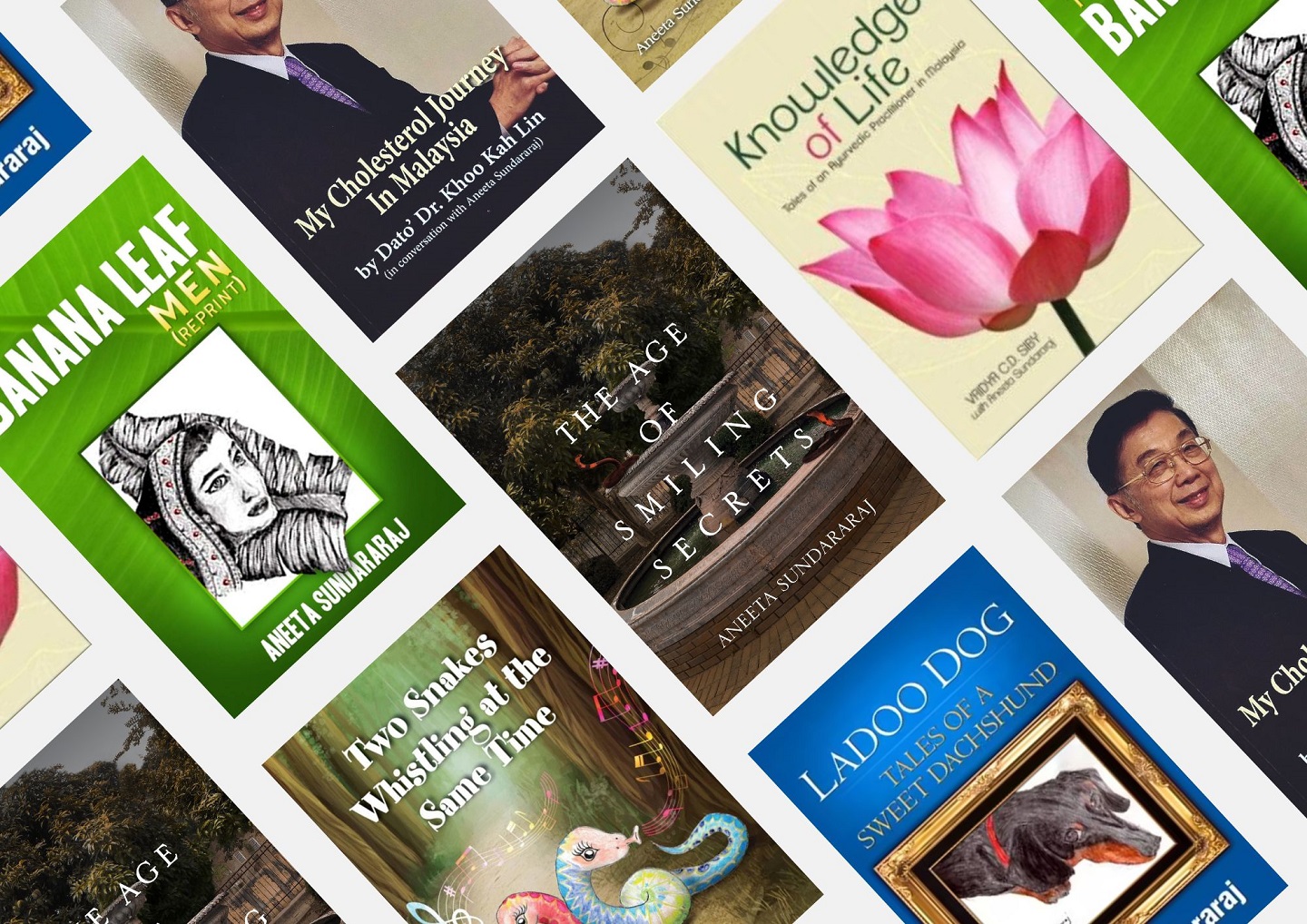
The author shares how chauvinistic suitors provided fodder for her first book and local issues that seeded other stories (All photos: Aneeta Sundararaj)
Between proposals by strangers and predictions of a lonely future, Aneeta Sundararaj gathered material for her 2003 debut novel, The Banana Leaf Men, and a short story, The Weathermen: A Love Letter, which won the Trisha Ashley Award in the 2022 Exeter Story Prize last December.
More accolades followed. Blood, her winning entry in an open-theme short story writing contest for WriteFluence.com, was published in the anthology Crimson last month. My Beautiful Illusion, about elder abuse, came out first in the Northampton Writers’ Group competition, bagging the H E Bates Short Story Prize.
When Aneeta first dipped a toe in fiction two decades ago, her exasperation over chauvinistic suitors became inspiration for feisty, intelligent Tika, who agrees to an arranged marriage after reaching the watershed age of 30. Her own meetings with “banana leaf men”, so-called because they all took her to those rice-curry-and-veg eateries, were fodder for hilarious encounters in the book.
During a maiden meeting in May, one guy suggested that they marry in July. “Most of them assume I don’t think and won’t investigate,” Aneeta recalls. She did and found he was seeing a girl of another race, and his mother was pressuring him to marry an Indian girl so all would be settled.
Another, whom she had never met, asked if she was willing to take out insurance because, at 40, there was the added risk of things going wrong if she had a baby. Meanwhile, Hindu astrologers — she calls them “weathermen” — looked at the alignment of stars to map suitable matches and told her that if she did not settle for one, she would be left all alone after her parents passed on.
There was also the instance when a spiritual master pointed his finger in her face and asked, “Are you clean?”
aneeta_sundararaj_the_banana_leaf_men.jpg
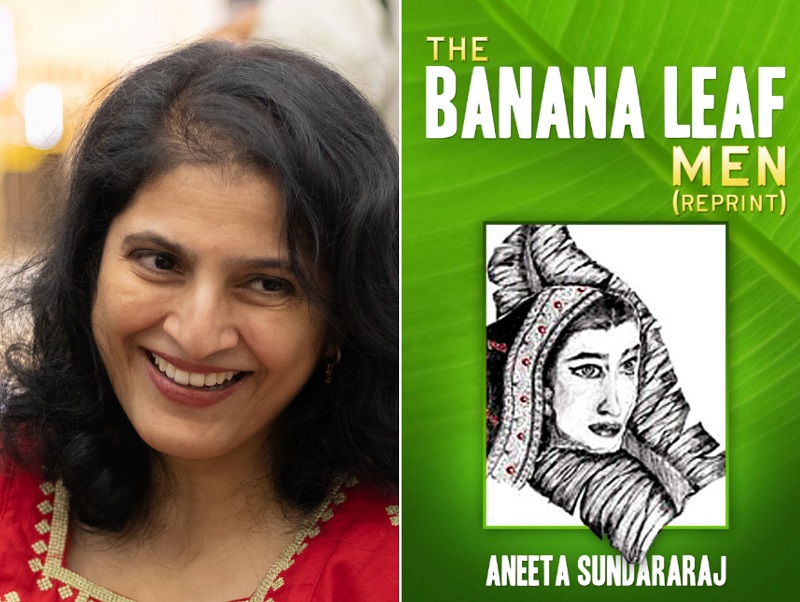
“I get what he’s asking, but it was the wrong thing to ask a girl. As I told Trisha [Ashley, who sponsored an award for a quirky or humorous story in the Exeter Prize], one of the challenges was writing about something so common to us and making it sound logical and plausible to the Western reader.”
The question Aneeta asked herself was, would anyone want to know about these cultural mores so familiar to many here? “If I can read about stigmata and know what it’s about, why can’t somebody understand this? Every [culture] has this thing about being ‘clean’.”
Writing The Weathermen was a form of therapy for the challenges that she and many girls she has spoken to over the years faced. “They tell me I’m okay. I say, no. I made the same mistakes [about men]. It’s just that I never married them.”
Knowing what she did not want to do for a career — continue with law — probably saved Aneeta from a fate worse than having a repulsive spouse.
“If I had stayed in legal practice, I would be dead by now,” says this lawyer who practised for five years before hanging up her robes to pursue writing. Some former colleagues have suffered broken marriages, diseases or death, she adds.
One of only two lawyers in the firm who pursued medico-legal work at post-graduate level — she did her masters on legal aspects of medical practice at the University of Wales, Cardiff — Aneeta still misses the medical negligence cases that came across her desk. “I loved it as I am from a medical background.”
Her parents used to share a clinic in Alor Setar. Mum, an orthodontist, only stopped working three years ago, at 91. Dad, a general practitioner, died in 2016.
my_cholesterol_journey_in_malaysia_by_datuk_dr_khoo_kah_lin_and_knowledge_of_life_tales_of_an_ayurvedic_practitioner_in_malaysia_by_vaidya_c_d_siby.jpg
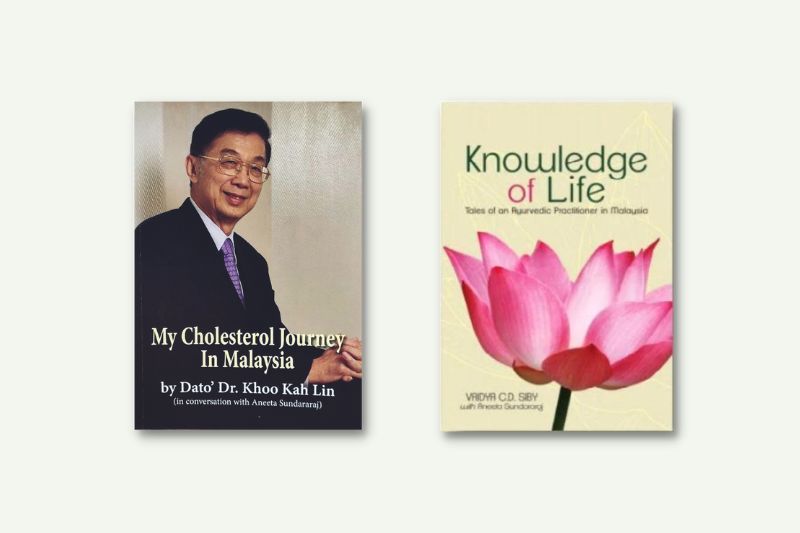
“I used to read how terrible doctors were. But I also knew the other side as I lived with them. I knew these men and women didn’t do things negligently; most of them were overworked and harassed. I knew the emotional side and the sacrifices they made. My aim was to study enough so I could defend them.”
She would have been “rich beyond my wildest dreams” if she still did that today. The good thing is that she does not depend on writing to survive, thanks to financial planning and a prudent lifestyle.
“I had no qualms about giving up airs and graces after leaving law practice. You just have to swallow your pride and say no if someone asks if you want to go to dinner. You learn to manage your life. If you go into writing thinking you are never going to make money, it becomes a bonus.”
The bonus, in print, is an array of books bearing her name. They include Ladoo Dog, literally a pet project about her sweet dachshund, for which she drew the cover, and non-fiction titles she worked on with their authors: My Cholesterol Journey in Malaysia by Datuk Dr Khoo Kah Lin and Knowledge of Life: Tales of an Ayurvedic Practitioner in Malaysia by Vaidya C D Siby.
Two Snakes Whistling at the Same Time, 13 stories on the idiosyncrasies of people around her, came out in 2018. Her latest book, The Age of Smiling Secrets, was shortlisted for two categories in the Book Award 2020 organised by the National Library of Malaysia.
the_age_of_smiling_secrets.jpg
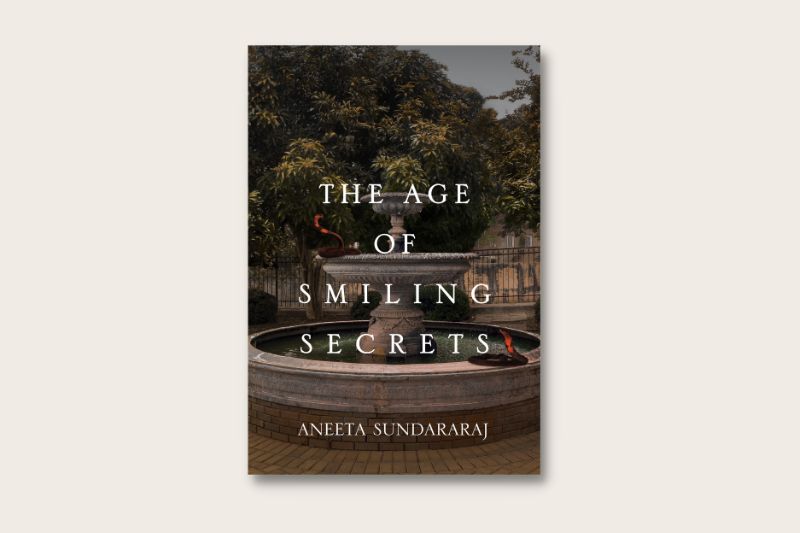
Its premise references a 2005 case in which a mother lost her children because her husband converted to Islam, and the kids too, without telling her. The case fascinated Aneeta because the court ruled that a mother could have equal custody but the child must not be influenced.
“How can? This is a very Malaysian novel. People either love it or hate it, or they cry. Most of them cry. I cannot read parts of it — I still cry.
Learning to write from scratch was a struggle and she made mistakes along the way. Progress was slow but steady, cheered on by mum, who gave her an article that says anything you want to achieve takes at least 20 years. “Which is true! And I love writing.”
From the start, Aneeta created a website on “how to tell a great story” and collated resources for storytellers in an eBook under the same title in 2020.
Of all the things she recalls, it was a suitor who gave her the courage, indirectly, to keep going.
“We went for lunch, then to Borders [bookstore]. Salman Rushdie’s Joseph Anton had just come out and he bought it for me. I never went out with him again but I never forgot he bought this book; it really changed everything in my perspective about writing.”
Joseph Anton — named after Conrad and Chekhov, two writers whose work Rushdie loved — is his memoir about being forced to live underground, after the fatwa declared on Feb 14, 1989, by Iran’s Ayatollah Khomeini in response to his The Satanic Verses, which was deemed blasphemous.
Having read about what “Salman (sigh), he’s always that to me”, had gone through — death threats and a US$3 million bounty on his head — Aneeta was appalled that his publisher was asking him to make changes to one of his manuscripts. “He put his foot down: ‘I want to continue my story as it is.’ And he just wrote it. Taking a leaf from the British royals, don’t care; don’t complain. I really admire his writing.”
ladoo_dog.jpg
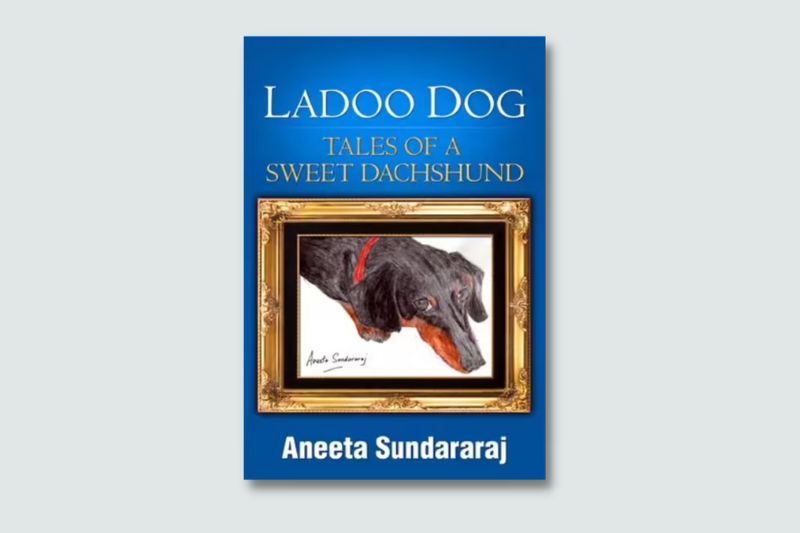
The pandemic years gave her time to return to academic books. She defended a doctoral thesis, Management of Prosperity among Artistes in Malaysia, and was awarded a PhD (Management) in 2021. With her Covid project done, she is focusing on short stories and, to her surprise, finds herself at a point where new ideas are brewing.
“I’m getting them from the men’s perspective — those who didn’t want me before because I am old-fashioned. They married girls willing to sleep with them at the drop of a hat. I’ve had four people come to me and I’m writing from their sadness.
“You’d never think a man who was so arrogant when he was young could feel so much emotion. What surprises me is the depth of sadness men go through, the kind of incredible sadness where if you don’t listen to them, they might drink themselves into oblivion or just jump off some balcony.”
Death, particularly the difference between its legal and medical aspects, including spiritual and religious strands, was what Aneeta wanted to focus on for her PhD, but mum put her foot down. Her dream job, “if ever I could relive my life, is to be a director of a funeral parlour. The business model would be so fantastic!” But mum said no child of hers would do such a job, and an aunt added that nobody would marry her.
Aneeta, who encourages any writing that she can understand and read, is doing more than just talking. She has put up a scholarship in her name for an all-rounder at New England Girls’ School in Armidale, New South Wales, where she had a “life-transforming experience” after Form Five. The award recognises the love of learning; demonstrates cultural awareness and involvement; and recognises sporting and leadership achievements.
She is also hosting a Great Story Competition on her website with a few friends to fan interest in short fiction. It is open for submissions of between 1,500 and 5,000 words and those interested can get more information at howtotellagreatstory.com/great-story-competition. Entries close on Feb 28 and winning stories will be published in an anthology.
Having written for academia, fiction, essays and creative non-fiction — Lord of the Ocean, her story about the invasion of Kadaram (Kedah) by the Tamil armada of the Chola Dynasty was published last year — Aneeta, 50, just wants to continue to enjoy writing and learning from mistakes. A new novel is in there, somewhere, but “it has not come together in my head”.
This article first appeared on Feb 20, 2023 in The Edge Malaysia.


